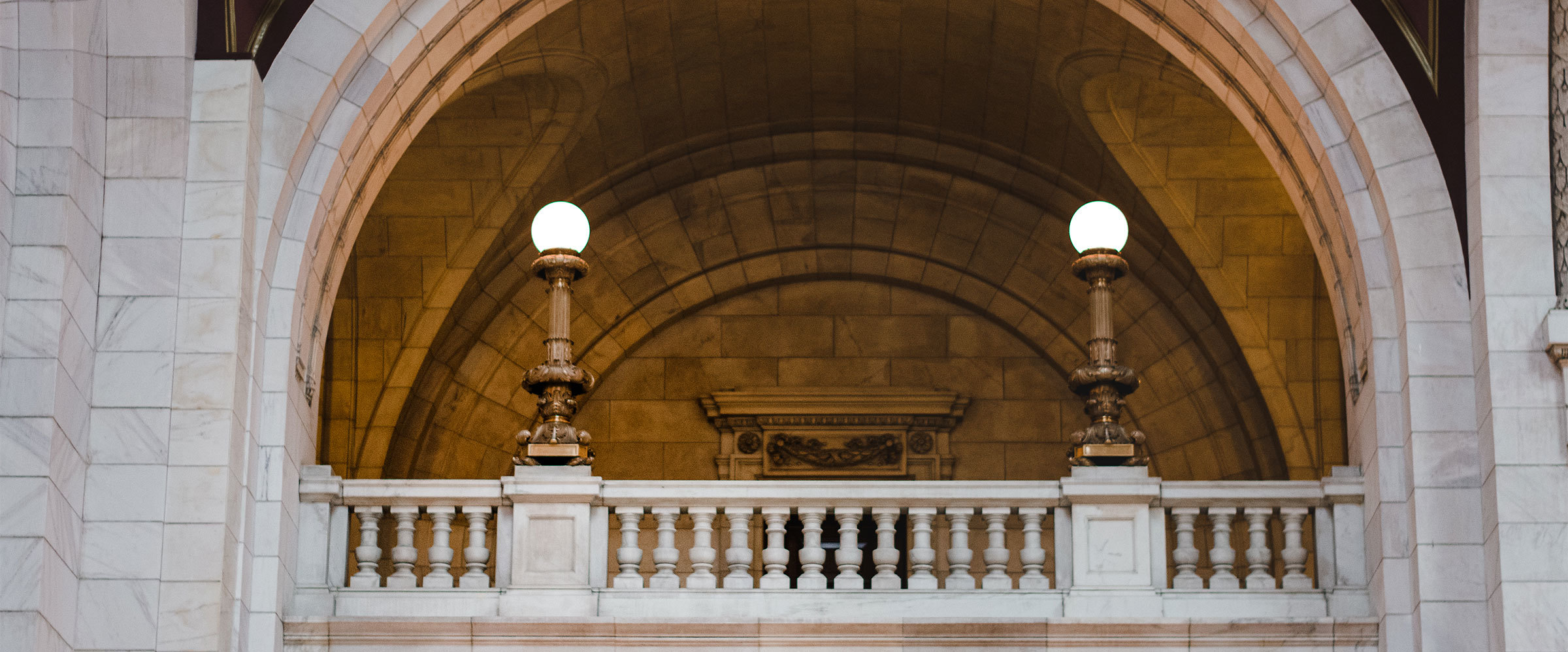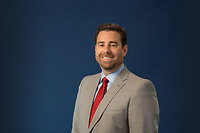The outbreak of the Coronavirus and its inevitable impact on businesses due to government mandated shutdowns and/or business mitigation practices will likely not only result in a spike of claims under various types of insurance products, but also lead to coverage litigation between policyholders and carriers. The Reminger Co., L.P.A. Bad Faith Coverage Insurance Department continues to keep abreast of these developments so as to provide our clients with up to date analysis and advice as claims arise. Among the areas of concern arising from the Coronavirus crisis are the following:
I. Business Interruption Claims
Business interruption and/or Business Income and Business Expense coverage is typically added to a Business Property Policy or via a comprehensive Business Owner’s Policy. This coverage is intended to protect businesses against income loss that may be sustained as a result of disruptions in their operations due to defined conditions. While the unique language in any given policy will ultimately control, the scope of coverage that is typically provided is triggered when the policyholder sustains “direct physical loss of or damage to scheduled property” caused by a “covered loss.” As it relates to potential business interruption/business expense claims arising from the Coronavirus crisis, a policyholder will have to establish that the existence of the Coronavirus at the business premise satisfies the policy requirement of “direct physical loss of or damage to insured property.” This requirement would not appear to be satisfied by instances of person to person transmission at a business location.
Separate and apart from the foregoing, a policyholder’s claim for business interruption coverage may also face additional coverage defenses. For example, a policy’s coverage for business interruption may be subject to a policy exclusion for a virus. In 2006, ISO introduced an endorsement containing an exclusion for loss due to virus or bacteria. There may also be potential coverage defense arising from the policy’s pollution exclusion depending upon the policy language as some policies define a “pollutant” as including a virus. Another common policy exclusion is the fungi or bacteria exclusion. It is questionable as to whether the Coronavirus would be considered bacterium under this exclusion.
Notably, cases have already been filed by restaurant owners whose businesses have been adversely impacted by a government mandated shutdown or restriction on the gathering of people. Interestingly, the policyholders in these cases are arguing that the physical presence of the Coronavirus on business property physically impacts public and private property. The policyholders maintain that the virus physically infects and stays on surfaces for up to twenty-eight days and that a contamination of the insured premises by the virus constitutes “direct physical loss requiring remediation to clean the surfaces of the establishment.” In essence, this policyholder position likens the existence of the Coronavirus on business surfaces to cases where intrusion of lead or gaseous fumes into an insured’s business premise have been found to constitute direct physical loss.
II. Civil Authority Losses
Another common provision of coverage found in property policies relates to damages incurred as a result of actions by a “Civil Authority” (i.e. federal, state, or local governmental entity). Typically, this scope of coverage requires proof from the policyholder that the loss of business income is linked to:
(1) An action of civil authority;
(2) That prohibits access to the described premise of the insured;
(3) That the prohibition of access is caused by a direct physical loss of or damage to property other than the described premises; and
(4) That the loss through the other property is caused by or results from a covered cause of loss as set forth in the policy.
While this coverage is not focused upon direct physical loss to the insured property, it generally does require proof of direct physical loss to property within a geographic distance of the insured property. It likewise requires that the direct physical loss to that property be caused by a covered loss. Hence, the same arguments that would apply to a business interruption claim could come into play with any potential claim under a policy’s civil authority coverage (i.e. does the existence of the Coronavirus on property outside the insured premises constitute a “direct physical loss” to that property). Claims for civil authority losses will also be subject to the argument that the act of civil authority did not completely prohibit access to the business. Lastly, this coverage may be subject to the same exclusions outlined in the business interruption section.
III. CGL Coverage
Standard Commercial General Liability Insurance Policies generally protect businesses against third-party claims for property damage or bodily injury resulting from an occurrence, which can include exposures to harmful conditions. These policies are triggered by an occurrence which is generally understood to include an accidental or fortuitous event. It can be anticipated that a policyholder may claim that a company’s failure to take to certain precautions to prevent the transmission of the Coronavirus at its place of business constitutes an accidental event that lead to bodily injury. Likewise, a policyholder may claim that a company’s shipment of product that contained the Coronavirus that lead to a third party’s injury constitutes an accident. In addition to the dispute as to whether the event giving rise to a claim against a business constitutes an “occurrence,” the CGL coverage will likely be subject to the same policy exclusions discussed in the business interruption section.
In light of various directives from government agencies, many restaurants have been closed for service with the exception of take-out or delivery options. One risk posed to restaurant owners is whether delivery services would be covered under their Commercial General Liability Policy. Generally, Commercial General Liability Policies exclude coverage for liabilities arising out of the operation of a motor vehicle. However, coverage may be available if the policy also provides business auto coverage. Any claim under a business auto coverage form must include an analysis of the vehicles covered. Additionally, while an employee may be using his or her personal vehicle to deliver the restaurant’s food, the employee’s personal auto policy may preclude coverage for liabilities while the employee is working in the business of an employer. Scrutiny of a business owner’s business liability policy should be undertaken to ascertain whether the risks presented by the Coronavirus pandemic are appropriately protected.
Finally, most Commercial General Liability Policies incorporate an express EPL Exclusion for employment-related practices, policies, acts, or omissions, such as discipline, defamation, harassment, or discrimination initially could impact any employment related claim under a CGL policy.
IV. Event Coverage
The Coronavirus is significantly impacting scheduled events—music festivals, corporate conferences, and sports tournaments. As an example, the NCAA March Madness basketball tournament was completely cancelled, the Summer Olympics in Japan has been postponed, as has the “Greatest Spectacle in Racing”, the Indianapolis 500.
Insurance coverage for event cancellation or contingency can be through a stand-alone policy or part of broader coverage (e.g. Commercial General Liability Policy). This type of coverage is generally designed to compensate the insured for losses arising out of cancellation, abandonment, disruption, and/or rescheduling of an event which is beyond the control of the insured.
The specific terms of these policies vary widely. For example, many event cancellation policies include an “adverse weather” exclusion, limiting coverage caused by rain, snow, etc. Other policies cover adverse weather if it makes it physically impossible to hold the event or too dangerous for those attending the event. This coverage is, however, necessary for many businesses whose main purpose or stream of income comes from events (e.g. trade show organizers, sports leagues).
The Coronavirus would likely be deemed a “communicable disease” under most policies. However, many policies contain a communicable disease exclusion applicable to event cancellation policies. This exclusion would generally negate coverage for losses from communicable diseases or the threat or fear of communicable diseases, whether it be actual (real) or just perceived. It is important to note that the exclusion of coverage for losses incurred as a result of communicable disease, may be subject to the argument that a communicable disease may still be covered if the event is made physically impossible (e.g. the venue is closed) by an order or directive of a governmental authority.
V. Workers’ Compensation
Workers’ Compensation insurance is designed to cover your employees who suffer injury or illness in the workplace. Many of these policies and/or state programs in those jurisdictions that have a monopolistic workers’ compensation system, designate particular covered occupational diseases. As a general proposition, in order for a non-scheduled occupational disease to be deemed compensable, the policyholder must provide expert testimony to establish that the claimant contacted the illness in the course of his or her employment, the illness is particular to the claimant’s employment by its cause and the characteristics of its manifestations or the conditions of employment resulting in a hazard distinguishing the employment and the character of the employment from that of the general public, and the claimant’s employment created a risk of contracting the illness to a greater degree and in a different manner from the public generally. As such, each claim should be considered on a separate case by case basis. Obviously, claims arising from a person’s employment such as a healthcare worker and first responder may require a more rigorous analysis.
VI. D&O Policies/Management Liability Policies
As a general proposition, Business Management Liability Policies provide more comprehensive coverage than a D&O policy with it typically limited to claims made against director and officers of a company while acting in their fiduciary capacity. A Business Management Policy can include D&O coverage as well as coverage for company liability and even employment practices liability. As a general proposition, these policies respond to economic damages arising from company decision makers and do not respond to claims for bodily injuries. Many of these policies contain exclusions for claims that are based upon or arising out of or attributable to any bodily injury. However, it is not uncommon for these policies to contain a more narrow exclusion which only relate to claims for bodily injury.
VII. Claims Against Brokers and Agents Under E&O Policies
In addition to pursuing claims for insurance coverage for Coronavirus related damages, policyholders may also assert claims against their agents and brokers for failing to advise of this risk in the operation of their business and/or for failing to obtain coverage on behalf of the policyholder consistent with the directives of the policyholder.
While both insurers and insureds may struggle with answering questions surrounding the availability of insurance coverage for pandemic-related losses, insurance agents and brokers should be prepared to face a myriad of questions – and possible liability claims in the months and years to come. In these uncertain times, brokers will play a key role in answering customer’s questions regarding the insurance market, the impact of Coronavirus, and search the market for products that meet their demands and needs. Indeed, brokers are often the first line when insureds are looking to maximize the protections afforded under their insurance program.
Best practices for agents and brokers in these uncertain times includes acting with honesty and integrity in the client’s best interest. Provide reasonable assistance in submitting a claim and not advising clients on matters that the insurance professional lacks training or experience. Further, a broker should carry out a suitability assessment of the client’s objectives, circumstances, needs, and priorities before making any recommendations. Finally, a broker should disclose any association or affiliation with an insurer where the professional is recommending products of that insurer.
With these general best practices in mind, given the state of flux regarding coverage for COVID-19-related losses, it is important for customers to understand why certain coverage may be excluded or why a claim may not meet coverage guidelines. A broker should avoid responding to questions when they do not know the answer and, when necessary, engage with the insurer to determine the appropriate course of action. If there is any uncertainty regarding coverage for their customers, a broker should follow their established guidelines for submitting claims to the insurer. As always, it remains the insurer’s role to determine the scope of coverage. Finally, a broker should promptly and properly document all conversations with the customer as well as any conversations with the carrier for future reference.
VIII. Employment Claims
The recent COVID-19 outbreak and responsive efforts to limit its spread are significantly impacting the way businesses conduct operations and manage their workforces. These developments in turn have important implications for insurance carriers who underwrite Employment Practices Liability (“EPL”) Coverage for insured businesses.
Federal, state, and local governments continue to respond to the current pandemic with legislative relief, shelter-in-place orders, government mandates to limit or close so-called “non-essential” businesses, and changes in laws governing unemployment and paid leave. These measures have drastically changed many aspects of established employment law; and now more than ever, businesses must adapt to constantly changing legal obligations. This new and uncertain landscape significantly increases the risk of possible missteps by insured businesses that can trigger legal liability and possible EPL coverage.
In response to the Coronavirus outbreak, businesses are making a myriad of changes to workplace practices to combat the virus, including increased remote work and telework arrangements, reduced staffing and hours of operation, staggered scheduling, social distancing, and the use of additional personal protective equipment. Companies are faced with vastly increased requests for sick leave, paid time off, medical leave, caregiver leave, and personal leave due to employee illness, the need to care for others who are infected or quarantined, and childcare obligations from the closure of schools and daycare services. Many businesses are being forced to make difficult decisions about slow-downs, furloughs, temporary and permanent lay-offs, and staff reductions due to decreased demand and government-ordered suspension of operations.
Changes in the law abound as well. Many states are issuing mandates for “non-essential” businesses to temporarily cease operations, for business and personal travel to be severely limited or postponed, and for citizens to stay home or shelter-in-place. The specifics of these orders vary widely from state to state and continue to evolve as the virus spreads.
Importantly, on March 18, 2020, Congress passed the Families First Coronavirus Response Act (“FFCRA”) which imposes sweeping new obligations to provide paid sick leave and paid family and medical leave to millions of American workers based upon several COVID-19-related circumstances. While the Family and Medical Leave Act (“FMLA”) generally applies to companies with 50 or more employees, the FFCRA imposes these new paid leave obligations on companies employing “fewer than 500 employees,” thus introducing family and medical leave duties to thousands of smaller businesses that are likely unaccustomed to the FMLA.
Newly imposed FFCRA duties are far from uniform. They include two weeks of employer-paid emergency sick leave for several COVID-19-related circumstances, and up to 12 weeks of job-protected employer-paid family and medical leave for childcare needs resulting from a closed school or daycare. While dovetailing somewhat with the existing FMLA statute, the FFCRA includes a number of novel and detailed provisions governing eligibility for leave, length of service requirements, and the calculation of the number of hours and hourly rate for leave. The number of FFCRA paid sick leave hours varies between full-time and part-time employees, and the hourly rate of paid leave (either the employee’s full “regular rate of pay” or 2/3 of that rate) varies depending upon the reason leave is requested.
As employers adapt to these substantial workplace challenges in an environment of shifting legal duties, an increase in employment-related claims is highly likely. Specifically, employers and their EPL carriers can expect to see increased claims in the following six areas:
o FFCRA Paid Sick Leave. The FFCRA paid sick leave provisions are enforced as minimum wage violations under the Fair Labor Standards Act, and are therefore subject to recovery of back wages, liquidated “double” damages, attorneys’ fees, court costs, and injunctive relief, via administrative action by the U.S. Secretary of Labor or private civil suits by aggrieved employees. To the extent employers fail to comply with the FFCRA’s paid sick leave provisions or miscalculate the proper amount or rate of pay, they are susceptible to FLSA claims for these damages.
o WARN Act. The federal Worker Adjustment Retraining and Notification Act generally requires employers with 100 or more full-time employees to provide 60 days advance written notice to employees, union representatives, and certain elected and unemployment administration officials, when a “plant closing” or “mass layoff” will result in employment loss for more than 50 employees or 33% of a company’s workforce. Although the Act provides a defense in the context of “Unforeseen Business Circumstances” caused by sudden, dramatic, and unexpected conditions outside the employer’s control, even in that circumstance the employer still must provide as much notice as “practicable.” WARN Act requirements and defenses are highly technical and violations are enforceable by civil suits for back-pay and benefits, civil penalties up to $500 per day, and attorneys’ fees.
o FMLA Interference and Retaliation. The FMLA prohibits employers from interfering with, restraining, or denying employee rights to FMLA leave. It also prohibits retaliation for requesting or taking FMLA leave, asserting FMLA rights, or opposing or complaining about unlawful FMLA practices. Many smaller employers may be unfamiliar with FMLA requirements that have never before applied to their business, and even larger employers may struggle to correctly administer new paid leave provisions. As requests for paid emergency family and medical leave multiply, risks of mistakes and mishandling increase significantly. Claims of interference and retaliation are likely to rise correspondingly.
o Disability Discrimination. COVID-19 presents a number of risks relating to the Americans With Disabilities Act (“ADA”) and corresponding state and local disability discrimination laws. The ADA generally prohibits employment discrimination on the basis of a disability, which is defined as a physical or mental impairment that substantially limits one or more major life activities. Since COVID-19 symptoms range from mild fever and cough, to severe respiratory distress resulting in hospitalization and death, whether or not COVID-19 qualifies as a disability may depend upon how it affects an individual employee.
The ADA also provides protection for employees who have “a record of” a disability (possibly including a COVID-19 diagnosis), as well as those who are “regarded as” disabled and mistreated because of the mistaken perception the employee has COVID-19, regardless of whether or not they actually contract the virus. A “regarded as” disabled claim may fail if the perceived disability is both “transitory and minor,” but it is unclear how receptive courts may be to this defense if hospitalization or mortality rates continue to rise.
Lastly, COVID-19 symptoms – alone or in combination with other conditions – may trigger employer ADA obligations to provide reasonable accommodations, absent some undue burden on the employer or direct threat to coworkers. Either a company’s discriminatory treatment of an employee based upon actual or perceived COVID-19 symptoms or diagnosis, or a company’s failure to meaningfully engage in an interactive process to explore reasonable accommodations, can lead to a claim of disability discrimination.
o National Origin/Race/Color Discrimination. Since COVID-19 was first identified in Wuhan, China, there is an emerging tendency by some to blame those of Chinese and Asian descent for the outbreak, which can result in unlawful workplace hostility and harassment. Similarly, the misperception that employees of Asian descent may be more likely to carry or transmit the virus can lead to claims of discrimination where employment decisions are based on legally protected race or national origin, rather than upon behavior that can objectively increase the risk of infection, such as travel to heavily-infected areas.
o Other Discrimination and Wrongful Termination. As the current economic environment forces employers to downsize, some are using the “opportunity” to rid themselves of particularly unproductive or troublesome employees. Of course, it is completely lawful to eliminate “at will” employees for legitimate non-discriminatory business reasons including decreased demand and revenue. However, plaintiffs’ attorneys will be quick to suggest unlawful discriminatory grounds for these termination selections. Businesses that do not use and document objective verifiable criteria for staff reductions (such as tenure, quantifiable levels of production or performance, and the like) will be vulnerable to claims of discrimination and wrongful termination.
However, regardless of whether the claims described in the six categories above are ultimately successful, they are certain to implicate EPL coverage. Generally, EPL Coverage Parts contract to pay on behalf of the insured employer “Loss” which the insured is legally obligated to pay due to an “Employment Claim” arising from a “Wrongful Employment Practice or Act.” An “Employment Claim” typically includes a written demand for monetary or non-monetary relief, a civil lawsuit, or a formal administrative proceeding commenced by a government agency like the US Equal Employment Opportunity Commission (“EEOC”). “Wrongful Employment Practice” is typically defined broadly to include any actual or alleged discrimination, retaliation, workplace harassment, wrongful termination, or workplace tort by the insured against an employee. Certain policy forms expressly include FMLA violations, employment-related misrepresentation, defamation, infliction of emotional distress, wrongful demotion, and deprivation of seniority or career opportunity, in the definition of Wrongful Employment Practice.
Subject to other terms, conditions, and exclusions, these EPL policy provisions clearly contemplate coverage for the anticipated claims identified in the third through sixth categories above (i.e., FMLA, ADA, national origin/race/color, and wrongful termination). It is not uncommon however, for EPL policy Exclusions to expressly remove claims for violations of the WARN Act and the FLSA from the scope of EPL coverage. Where EPL policies contain such Exclusions, they may provide an effective coverage defense against the anticipated emergency paid sick leave and WARN Act claims discussed in the first two categories above.
On the other hand, certain EPL policies now expressly include “Wage and Hour Law” claims within the scope of covered “Wrongful Employment Practices.” Wage and Hour Law claims are defined to include alleged or actual violation of responsibilities, obligations, and duties imposed by any federal, state or local law governing wage, hour, and payroll policies and practices, such as the FLSA. Rather than extending EPL indemnification coverage to such Wage and Hour Law claims, other EPL Endorsements merely provide a Defense Expense Sublimit to assist the insured’s defense of the claim. As a result, claims for emergency paid sick leave under the FFCRA may trigger defense or indemnification obligations under policies that contain these various Wage and Hour Law provisions.
In conclusion, the COVID-19 health crisis presents strategic and legal challenges for insured businesses and EPL insurance carriers alike. The difficult employment decisions businesses will be forced to make, coupled with the fluid nature of their legal obligations, are nearly certain to result in an increase in employment-related claims. As these claims are reported, EPL insurance professionals must carefully review the precise terms, conditions, exclusions, and endorsements of the applicable EPL policy to ensure any coverage limitations or exclusions are fairly applied and the insureds are provided the coverage for which they contracted.
IX. Good Claims Practices Recommendations
Coronavirus Claims Investigation
On March 27, 2020, a policyholder sued his insurer in the Northern District of Illinois alleging that the insurer wrongfully denied a business interruption claim due to the COVID-19 pandemic and, in doing so, acted in bad faith. Big Onion Tavern Group, LLC, et al v. Society Insurance, Inc., No. 1:20-cv-02005 (N.D. Ill. March 27, 2020). The policyholder alleged that its insurer acted in bad faith by immediately denying its claim without conducting any investigation.
In evaluating a policyholder’s claim for business interruption civil authority coverage or under other policy coverage forms, in light of the Coronavirus pandemic, insurers should engage in a robust claims investigation before making any coverage determination. Towards that end, insurers should seek information from the policyholder including whether the policyholder has sustained a physical loss or damage to its property. It should also obtain information concerning whether the policyholder has sustained a complete or partial shut-down because of prohibited access to business property or whether it has sustained a complete or partial disruption of its business operations. The insurer should also request information regarding whether there is evidence of the active presence of the Coronavirus at the insured’s business or whether the insured’s loss resulted from precautionary or preventive measures implemented by the policyholder. Further, the insurer should seek to determine whether any testing of the policyholder’s business has been undertaken and whether the physical presence of Coronavirus has been documented. Finally, to the extent that the policyholder is making a request for civil authority coverage, a copy of the civil authority order should be obtained and reviewed to determine if the order makes specific findings regarding physical loss or damage relating to the virus.
Answers to these and other questions may help inform an insurer’s decision about the availability of coverage and the potential application of exclusions. Proactively seeking this information in connection with an insurer’s investigation will assist the insurer in making an informed coverage determination and in responding to a policyholder’s contention that an insurer acted with reasonable justification.
X. Conclusion
This newsletter is intended to provide a brief outline as to some of the claims and issues which may result from the current Coronavirus crisis. The Reminger Insurance Coverage/Bad Faith Coverage practice members are available to discuss these issues or any claims that you may be confronted from this crisis. In this regard, feel free to contact any of our contact leaders from the offices designated below. In the meantime, we pray that everyone stays healthy in this era of social distancing.










